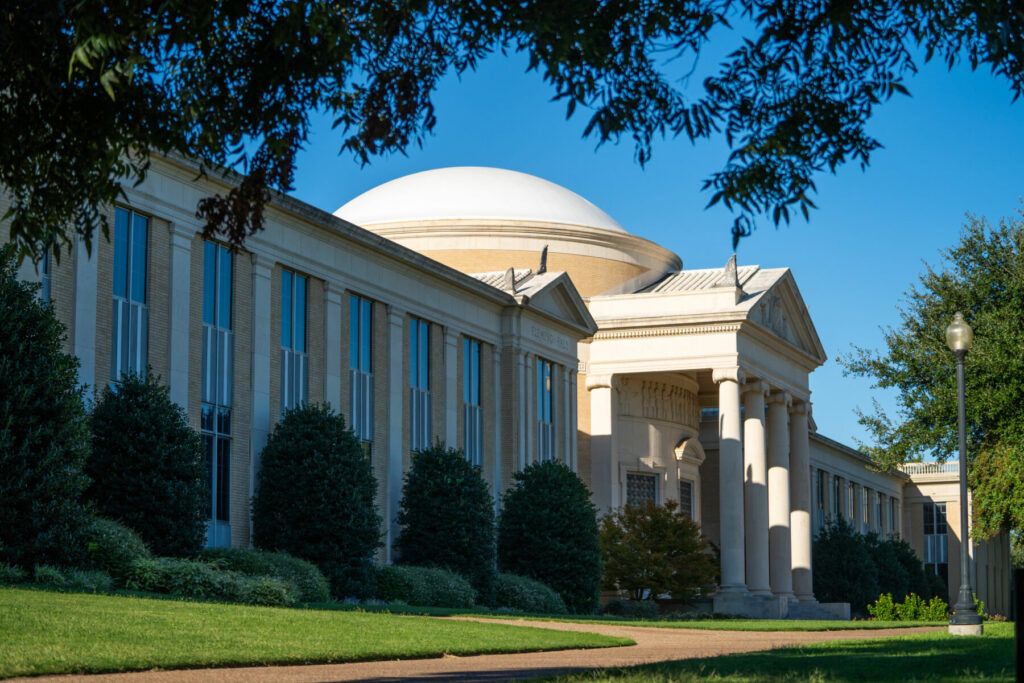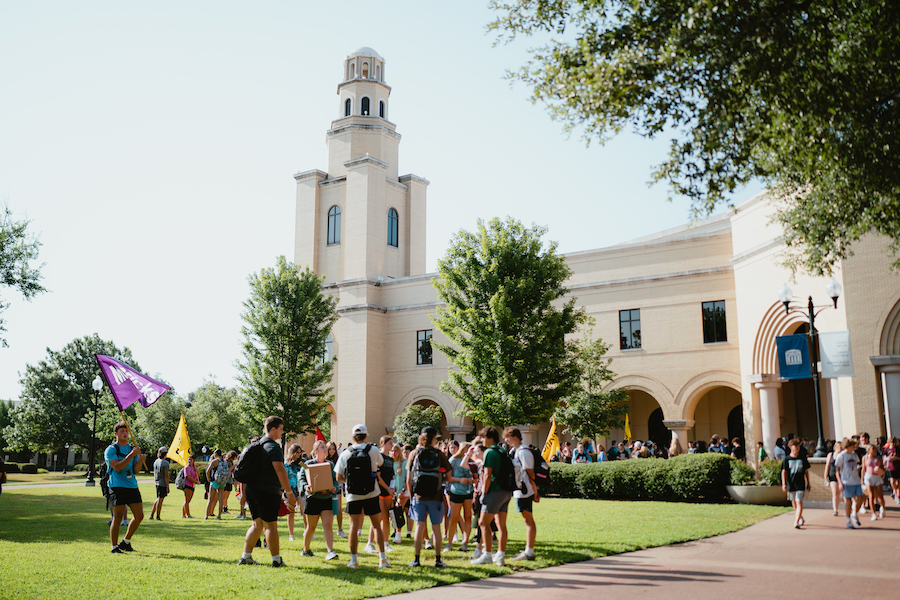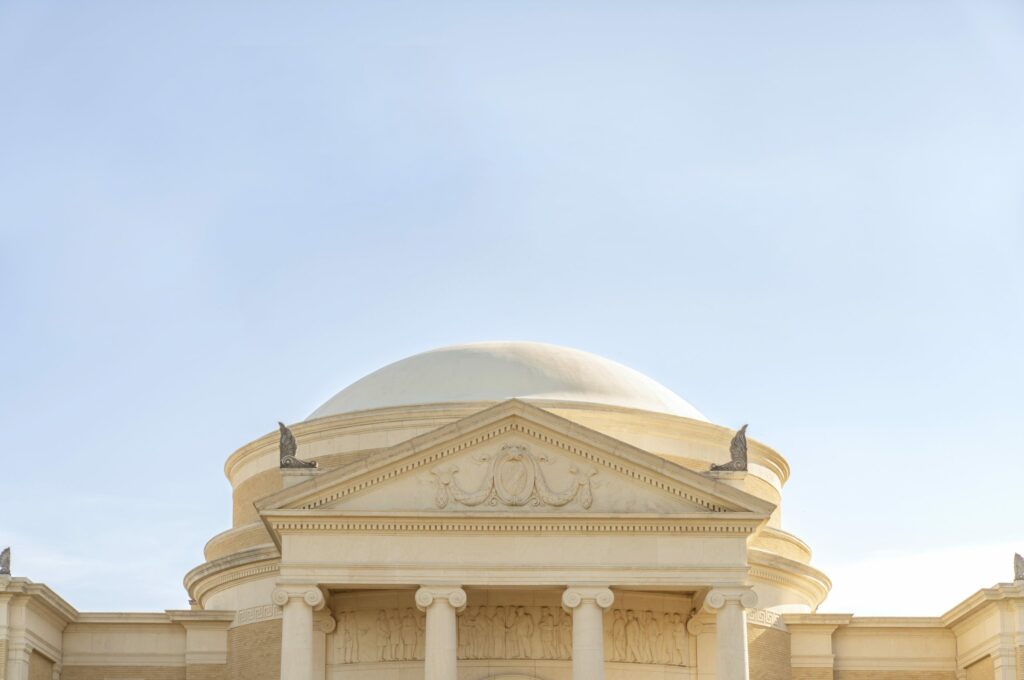Response to Sligar-Bunnell Allegations

Response to Sligar-Bunnell Allegations
Southwestern Seminary Board of Trustees
June 2, 2023
During a special meeting of the Southwestern Seminary Board of Trustees on May 30, the Board overwhelmingly adopted a motion authorizing the publication of a response to allegations made by trustees Aaron Sligar and Andrew Bunnell concerning various matters relating to a trustee task force formed to evaluate expenditures of the former president that was authorized during the Fall 2022 trustee meeting. This document is issued in fulfillment of the motion.
The task force was composed of John Rayburn, chairman, George West, Mike Bussey, Josh Grega, and Sligar (who was added to the task force in March). The findings of this review, based on extensive research by the task force, along with recommendations for preventing such issues in the future were presented to trustees at their Spring 2023 meeting. Each task force member made oral presentations. Each presentation was reviewed in advance of the meeting by other members of the task force prior to presentation, except for Sligar’s evolving presentations, which changed after his initial submission to the task force. Matters covered by the task force included suggested strengthened financial guardrails, evaluation of possible sale of portions of the campus, and spending habits of the former president.
On May 20, an email by Sligar and Bunnell with several attachments was sent to all trustees requesting a special meeting and questioning the conduct of the officers and Executive Committee concerning the work of the task force that investigated financial practices of the former president. Sligar and Bunnell also raised allegations, some of which had previously been raised by the former president and found to be without merit. Nevertheless, each allegation was thoroughly and carefully examined by other members of the task force in preparation for the May 30 special meeting. Although the Sligar-Bunnell request for a special meeting fell well short of a majority of support necessary to have a special meeting, Chairman Danny Roberts, upon the request of President David S. Dockery, called for the May 30 special meeting.
During the May 30 meeting, detailed and lengthy presentations responding to the allegations were given by members of the task force with opportunities afforded to Sligar and Bunnell to defend their allegations. Task force members interviewed multiple faculty and staff members, independently verifying data and information in each case, and consulting outside parties independent of staff relevant to each allegation. Each allegation was found to be without merit and in some cases demonstrably false.
Background Information
During the Fall 2022 trustee meeting, Rayburn outlined concerning patterns of stewardship under the previous administration. Trustees discussed a range of options and eventually agreed to hire a firm to audit the spending on the President’s home and office, as well as personal expenditures by Adam Greenway that were perceived to be inappropriate, such as first-class airfare for Dr. Greenway and his family and other spending on personal items for the former president.
After the Fall 2022 trustee meeting, Rayburn asked other members of the Business Administration Committee—Grega, West, and Bussey—to work with him to review these categories of expenses. At the time, the task force was also planning to engage external auditors to assist in this review.
After the task force had done significant work, including receiving a proposal from external auditors, the decision was made in early 2023 that it was unwise to expend additional resources to conduct an audit until there was reason to do so. Task force members were asked to prepare reports on their findings from the review, limited in scope, to the president’s home and office, the former president’s airfare, and those items perceived as personal in nature. Each person was tasked with reviewing the information and preparing reports on a prior proposed Carroll Park sale, seminary real estate, and other finance-related matters; accounting matters; and policy review. If the task force found cause for additional audits by professional firms, the Executive Committee would commit to engaging such services.
In good faith, Rayburn invited Sligar to evaluate the relevant financial records because of his belief that a forensic audit may be required, and he was given access to the spending reports 42 days before the Spring 2023 trustee meeting. Additionally, Sligar requested to transfer to the Business Administration Committee, which the Chairman of the Board approved.
As part of the expanded task force, Sligar began to evaluate all the documents provided to him and was asked to generate a report to present to the full Board of Trustees. As he conducted his review, he expanded the scope of his efforts and claimed that he was receiving information from various sources, none of whom were named. He reported to members of the task force that he was working on a process to verify claims to separate facts from rumors, assuring members that he would not report any information he could not verify, especially any unsubstantiated allegations that could cause reputational damage. The task force did not limit what he could report if the claims were verified.
On March 30, Sligar emailed task force members a copy of his report. His report did not include items that he admitted were unsubstantiated claims and rumors. However, his report did describe seminary spending by Dr. Greenway as “financial abuse,” “unnecessary and excessive,” “extravagant,” “out-of-control spending,” and “demonstrated an extreme freedom in the finances of the Seminary.”
However, the May 20 email Sligar and Bunnell sent to trustees calling for a special meeting claimed:
In a very late night meeting the Monday evening, extending into the early morning hours of Tuesday, before the working sessions of the Board began on Tuesday morning, Mr. Sligar was asked by officers of the executive committee not to disclose pertinent information to the full Board of Trustees, and to not send his full report to the Board in written form.
This statement casts doubt over the trustworthiness of the Executive Committee, suggesting the EC was intentionally withholding important information from the trustees. That was false.
1. First, Sligar did not provide a copy of the written report he wanted to submit to the full Board of Trustees. He simply verbalized his desire to share unsubstantiated information. There were also good reasons for the Executive Committee to doubt some of his claims.
2. Second, it was the right decision for the Executive Committee members to ask Sligar not to share those rumors with the full Board until the claims could be investigated and verified. If, in fact, the claims turned out to be true, they would have been shared with the full Board in cooperation with Sligar as a member of the task force and Business Administration Committee.
3. The information Sligar was asked not to disclose was unverified and required further investigation to confirm. They were still just rumors and unsubstantiated claims.
Evolving Sligar Report
The report Sligar delivered to trustees on April 18 was substantially different than the one he provided to Rayburn on March 30. In the report he gave during the April 18 trustee work session, most of the references that portrayed Dr. Greenway in a negative light were missing. Further, he never disclosed the changes in his report to Rayburn, any other members of the Business Administration Committee, or any other task force members.
Below is one significant example of a change made between the versions of Sligar’s report. In the March 30 version of his report, Sligar said:
During the interviews and review of all documentation it became obvious that the culture did not allow for Dr. Greenways [sic] closest staff to approach him in regards to finances. Fear of retaliation, removal, or even possibility being black-balled from SBC leadership was a reality that some individuals had to deal with. This prevented the protection that the seminary needed to control the out-of-control spending.
But in the report he gave during the April 18 trustee work session meeting, he said:
For undetermined reasons Dr. Greenways’ [sic] closest staff failed to approach him regarding finances.
That statement is untrue. Dr. Greenway’s staff did approach him to make him aware that financial conditions at the seminary were deteriorating and that changes needed to be made. Those warnings to Dr. Greenway exist in written form and have been reviewed by members of the task force and the Executive Committee.
It was later discovered that Sligar provided versions of his report before and during the April 18 meeting to a staff member who was known to have a close relationship to Dr. Greenway. In that context, Sligar said:
I will explain what I am doing. Don’t lose hope.
Then, while the trustees were in executive session on April 18, Sligar sent another communication to the same staff member, who was not in executive session, with his report. By taking this action, Sligar violated the trust of the Board and the rules of executive session.
In conclusion, the following three concerns must be considered when considering the actions and allegations of Sligar and Bunnell:
1. Sligar was entrusted to work collaboratively with task force members to evaluate the relevant data within the scope of work outlined for him. However, he did not extend that same trust back to the Chairman, Executive Committee, the Chairman of the Business Administration Committee, or his fellow task force members.
2. Sligar broke privilege by sharing a report given in executive session with those not in the executive session.
3. Sligar has accused the Executive Committee of a lack of transparency and withholding information from trustees, although he removed from his report substantiated facts about the former president’s spending, which was within the scope of the report.
Response to Specific Allegations
Allegation #1: A contract was signed with American Express that contained a personal guarantee from the employee. This made the employee responsible for payments if the seminary failed to pay. As a result, the credit scores of employees were negatively impacted.
The investigation into this allegation found that corporate credit cards issued to employees do not require a personal guarantee from the employee and do not result in any reports being made to credit bureaus. There is no evidence of any negative impact on the credit scores of employees. It has also been confirmed by American Express that nothing is reported to credit bureaus that would impact the personal credit scores of corporate cardholders.
Allegation #2: Endowment distribution funds for Revive The Nation were changed from designated funds to operations funds and were not spent in a manner consistent with donor intent.
The allegation of donor designation changes is false. Funds establishing the endowment for what is now called Revive The Nation have been used for this purpose and other instruction consistent with the donor’s intent. Further, the disclosure of the donor’s name by Sligar and Bunnell is a violation of the donor’s intent to remain anonymous.
Allegation #3: The formation of Future Fort Worth by Colby Adams is a conflict of interest that should have been disclosed.
Future Fort Worth, a private nonprofit organization, has not engaged in any business activity, including any business with Southwestern Seminary. Colby Adams has not realized financial gain, either directly or through Future Fort Worth, from the sale of any seminary real estate. Adams’ involvement in Future Fort Worth is personal in nature and has been fully disclosed to Board and administrative leadership.
Allegation #4: Unspecific allegations of personal moral misconduct against certain seminary staff members.
Rumors of other personal moral misconduct against seminary staff are baseless, egregious, and harmful to the individuals.
This concludes our response to the false allegations made by Sligar and Bunnell. It is regrettable that publishing this document was necessary, but the reckless distribution of allegations that inevitably became public required a public response.
In a few days, the officers will share findings in response to the motion adopted by the Board in its May 30 meeting to “publish the audited financials as one comprehensive report for the fiscal years 2003-2022 and examples of presidential expenses as generated by the Task Force review.” The Board overwhelmingly approved this motion with a desire to provide as much transparency as possible.
Finally, in fulfillment of the instruction of the Board, the officers have begun their investigation into possible misconduct by Sligar and Bunnell, and will report back to the Board within 60 days.



